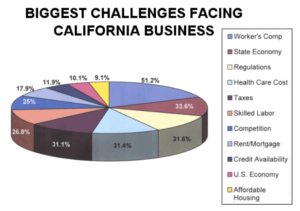Accountability in Four Easy Steps

Source: Partner Insights
The following includes excerpts, reproduced with permission, from an article by Marty Stanley, president of Dynamic Dialog, Inc.
Accountability hasn’t been considered the “next big idea” because it’s not “flashy.” There are no “bragging rights” about implementing an accountability process. After all, accountability means people would need to change, rather than a system or process that needs to change. And who wants to be accountable if it means having to personally change?
On the other hand we’ve seen what happens when there’s no accountability for leading people or processes: The dot-com bust, Enron, Katrina, FEMA…Scandals everywhere: Politics, religion, sports…Bernie Madoff, bailouts and industries collapsing…Product recalls, contaminated foods, greed, waste and excess.
Here are four easy steps to holding people accountable:
- Use job descriptions as the basis for hiring or promoting people into a position.
- Share the job description with incumbents so they know their accountabilities and let them know this will be used for training, coaching, and performance feedback.
- Have objective ways to measure and monitor performance and communicate those methods to the people performing the jobs. Follow through by providing feedback about performance.
- Provide training and coaching opportunities to enhance performance.
How to Successfully Sell Your Company
How to Successfully Sell Your Company Tips for Privately-Held Business Owners By Jason Pfannenstiel Be clear about your motivation for selling. Reason for the sale is among the first questions buyers will ask. Your personal and professional reasons should be more than simply wanting to cash out for a certain magical dollar value. Before you…
15 Ways to Improve Your Cash Flow Now
15 Ways to Improve Your Cash Flow Now By Howard Fletcher Cash management theory and techniques are well understood and practiced by treasury managers in large corporations. They use sophisticated models and cash management tools that allow them to predict and manage cash. Many of these are beyond the reach or need of small companies.…
Survey: Biggest Challenges Facing California Businesses
Survey: Biggest Challenges Facing California Businesses A recent survey was conducted to determine what business owners in California thought the biggest challenges facing their businesses were. Out of 1500 questionnaires, these are the percentage of respondents who checked off a box next to each challenge. (Respondents were allowed to select more than one box, so…
5 Strategies to Successful Cash Flow Management
5 Strategies to Successful Cash Flow Management By John Reddish How can you predict, avoid and/or, minimize the impact of a cash emergency? Managing cash flow is every manager’s challenge, every day, every year. Those managers who keep a close eye on their daily activity and emerging industry trends can help reduce their company’s exposure…


